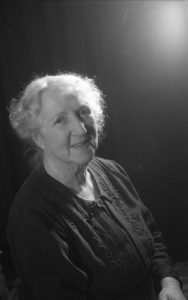
When I speak to groups, there are usually a few people who come up afterwards and tell me a story. I love stories. People are endlessly fascinating, and listening to their stories has been the best part of practicing medicine.
Four or five years ago, after a talk at a community college, an older, white-haired woman named Mabel pulled me aside and said “Sometimes you want treatment and sometimes you don’t.” She explained:
I had breast cancer when I was 38. I had four young children, and I told the doctors to do everything they could. I had an old-fashioned radical mastectomy and a lot of radiation and even some new chemo drugs. I was in the hospital for months and I was sick for two years – but I was cured, and that’s what mattered to me. I needed to stay around to see my kids grow up, even if I missed some things while I was being treated. Now I’m 85, and I have stage 3 colon cancer. I’m not getting any treatment. My husband is ill, and I need to care for him. Even with this cancer, I’ll probably live longer than he will, and I don’t want to miss a day. Now the quality of my life at the moment is more important that how long I live. It’s different than it was before.
Mabel enrolled in hospice a few months after we met. Her husband died six weeks later and she lived another four months, at peace with her decisions – both of them.
People often ask me me when the “time is right” for hospice. I can’t give them a simple answer. The time is right when your goals are consistent with hospice goals of care. That means comfort and quality of life are more important than the possibility of having more time, especially if “more time” would be spent in the hospital or in bed struggling with the side effects of treatment.
When Mabel was 38, she wanted more time, and she was willing to be sidelined for months in order to live longer. At 85, her goals had changed. Hospice care enabled her to care for her husband while we helped care for her, and gave her what was most important to her at the end of her life.
If you have questions about hospice, use our contact form or call us now for personalized guidance from Dr. Levy.
